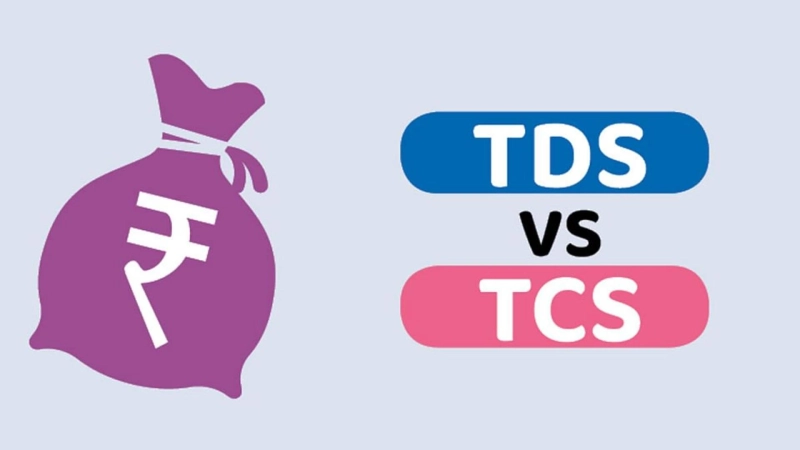If you are a working individual, you might already be familiar with the terms TDS and TCS. Both these schemes are crucial for the government to have a steady income. On the flip side, these two components are essential for businesses to pay taxes on time without penalties. Even though there are some apparent similarities, TDS and TCS difference is very much present.
TDS (Tax Deduction at Source)
If you dont know what TDS is, you might recall it from a salary slip or similar document. Nevertheless, Tax Deduction at Source or TDS is mandated under Section 149Q. Any business organisation or an individual buying goods and services above Rs.50 Lakhs will be asked to deduct the income tax amount at the source.
The tax rates are determined by the government and implemented inordinately. A deductor is responsible for collecting the income tax amount at the source. And the deductee receives the payment transferred by the deductor.
TCS (Tax Collected at Source)
TDS and TCS in income tax have a significant impact on all parties involved in it. While we have already briefed you about TDS, here is a small description of Tax Collected at Source or TCS. In this case, the seller is the initial collector of the tax, and the buyer becomes the taxpayer at the time of the sale.
Similar to TDS, TCS also has a monetary limit on goods sold upto Rs 50 lakhs. The goods and services on which TCS can be applied are detailed under Section 206C of the Income Tax Act 1961.
Major Differences Between TDS & TCS
As you can see for yourself, there are quite a few similarities already, like the financial limitation and origination of the taxes coinciding with the income. However, they are separate entities and have differences, especially in functions. Hence, let us try to put out the differences. The TDS TCS difference is discussed in the table below.
TDS | TCS |
The full form of TDS stands for Tax Deduction at Source. For any company or an individual who has exceeded the payment limit mentioned under a certain section of the law, TDS is applicable. | Whereas TCS stands for Tax Collection at Source. This tax amount is paid by the buyer when purchasing goods or services. They end up paying the tax amount to the seller. |
There is a transaction limit for both TDS and TCS in income tax. TDS applies to purchases over Rs 50 Lakhs under Section 194Q of the Income Tax Act. | On the other hand, TCS applies to the sale of goods over the range of Rs 50 Lakhs under Section 206 1(H). |
A certain tax deduction rate is applied to the purchase of goods over the limit. Generally, the rate is at 0.1%. | Similarly, the TCS rate is also 0.1%, which applies to the sale of goods. |
There are several things in which TDS can be applied. This includes salaries, rents, purchase of goods, and many more. | TCS applies to liquor, scrap, timber, toll tickets, forest produce, and other such things. |
TDS is deducted at the time of purchase, almost as soon as the payment is made. | Contradicting, TCS is collected at the time of the sale of products and services. |
TDS TCS difference can be clearly stated from the quarterly statements. In the case of TDS, three different returns are required to be filled. There is, respectively, 24Q (on salaries), 26Q (other than salaries) and 27Q (payments made to NRIs). | TCS is quite simple in that sense. There is only one quarterly return form needed to be filled: form 27E. |
TDS applies to individuals and companies making the payment. | TCS applies to goods sold, and the seller accepts the tax amount. |
If the individual or company fails to produce a Permanent Account Number (PAN), they will have to pay TDS at a higher rate. This is inscribed under Section 206AA. | On a similar note, the buyers must also provide their PAN documents to the seller while purchasing goods. Otherwise, the rate of TCS increases rapidly. |
Conclusion
The TDS and TCS difference is quite clear if you closely pay attention to the matter. In the case of failing to pay TDS in due time or filing the return incorrectly, they will receive a penalty under Section 27(1H). Businesses and individuals under the income tax mandate must know about TDS and TCS.
0



